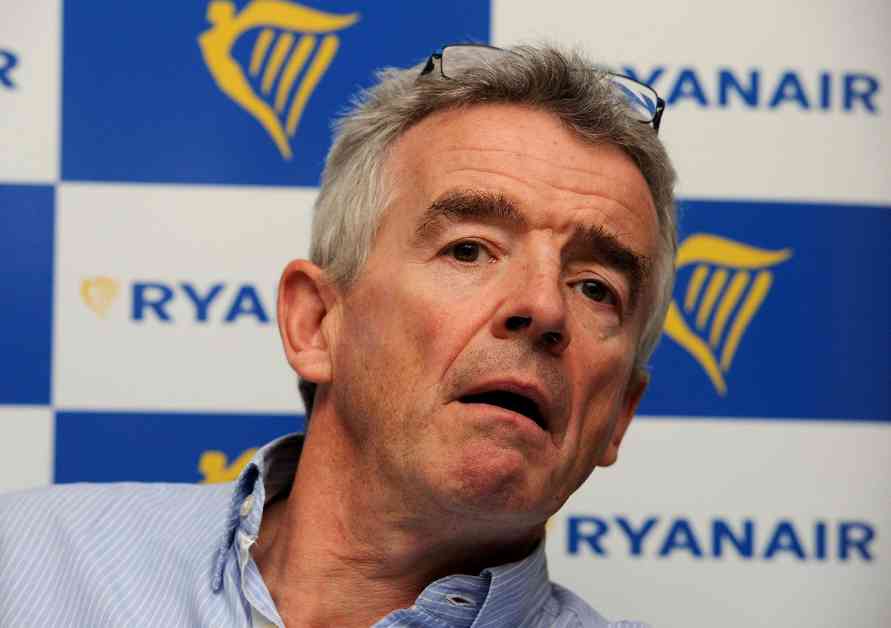Ryanair CEO Proposes Limits on Airport Drinks to Curb In-Flight Violence
Ryanair chief executive Michael O’Leary has recently raised concerns about the increasing incidents of disorder and violence on flights, particularly due to the consumption of alcohol. O’Leary has suggested implementing alcohol limits in airports to address this issue effectively. He believes that restricting passengers to two drinks per journey could help in curbing antisocial behavior and violent outbursts during flights.
O’Leary highlighted that violent incidents are occurring on a weekly basis, often fueled by alcohol consumption, especially when combined with other substances. He expressed his concerns in an interview with The Daily Telegraph, emphasizing the need for action to prevent such incidents from escalating further.
Challenges in Identifying Inebriated Passengers
One of the major challenges O’Leary pointed out is the difficulty in identifying inebriated passengers at the gate, particularly when they are boarding in groups. He noted that as long as passengers can stand up and shuffle, they are allowed to board the aircraft, making it challenging for airlines to assess their level of intoxication before the flight.
O’Leary highlighted the risks associated with allowing intoxicated individuals to board flights, as their behavior can escalate once the plane takes off. He emphasized the importance of addressing this issue to ensure the safety and security of both passengers and crew members during flights.
Impact of Longer Drinking Times at Airports
O’Leary also addressed the impact of longer drinking times at airports, particularly in destinations known for their party atmosphere. He mentioned Ibiza and some Greek islands as examples of locations where excessive drinking often leads to disruptive behavior on flights.
The CEO noted that delays in flights can exacerbate the problem, as passengers have more time to consume alcohol before boarding. He highlighted the need for stricter measures to prevent intoxicated individuals from causing disturbances during flights, emphasizing the importance of proactive interventions to address this issue effectively.
In conclusion, Michael O’Leary’s proposal to limit airport drinks to curb in-flight violence reflects the growing concern over the rise in disruptive behavior on flights. By implementing measures to restrict alcohol consumption and identify inebriated passengers, airlines can mitigate the risks associated with antisocial behavior and violence during air travel.
































